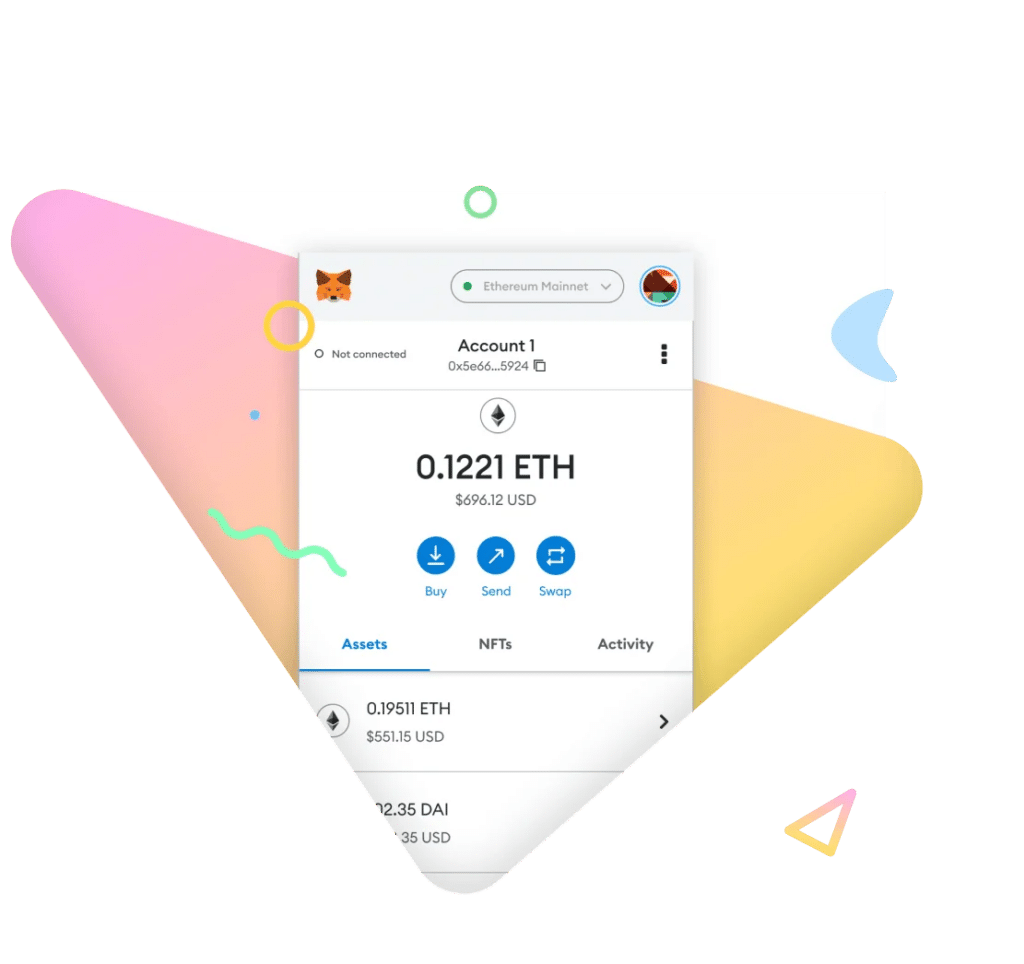MetaMask is one of the most popular cryptocurrency wallets that allows users to interact with the Ethereum blockchain. But is Metamask ERC-20 compatible – the standard for creating tokens on Ethereum? In this guide, we explain everything you need to know about MetaMask’s ERC-20 capabilities.
Summary
As an Ethereum-based wallet, MetaMask fully supports ERC-20 tokens. It enables users to store, send, receive, and interact with ERC-20 tokens and decentralized apps built on Ethereum. Users can easily add custom ERC-20 tokens to their wallet by entering the token contract address. Overall, MetaMask offers seamless integration of ERC-20 tokens with a user-friendly interface.
Is MetaMask ERC-20 Compatible?
MetaMask is designed specifically for the Ethereum blockchain and its token standards like ERC-20. When you create a MetaMask wallet, it generates an Ethereum address that can receive any ERC-20 token.
For popular ERC-20 tokens like USDC, UNI, or LINK, MetaMask automatically displays the token symbol and balance when you receive them. For less popular tokens, you may need to manually add them to see the balance.
You can send, receive and interact with dApps that use any ERC-20 token directly from your MetaMask wallet. The experience is seamless since MetaMask handles Ethereum addresses and gas fees in the background.
Overall, MetaMask fully supports the core functionality of ERC-20 tokens:
- Store ERC-20 tokens safely in your MetaMask wallet
- Send or receive ERC-20 tokens using your Ethereum address
- Swap ERC-20 tokens directly within MetaMask
- Interact securely with dApps that use ERC-20 tokens
- View balances, transaction histories and other details of your ERC-20 tokens
While MetaMask exclusively supports assets on the Ethereum blockchain and platforms like Polygon and Avalanche C-Chain, you cannot store Bitcoin (BTC) directly since it runs on its own blockchain – see our guide on Can Metamask Hold Bitcoin to help you. However, MetaMask makes it easy to add token to Metamask if you want to interact with ERC20 tokens or stablecoins pegged to the value of assets like BTC.

Adding Custom ERC-20 Tokens
While MetaMask supports any ERC-20 by default, you need to add custom tokens manually for them to show up in your wallet. Here are the steps:
- Click on the Assets tab in MetaMask
- Scroll down and click “Import Tokens”
- Enter the token contract address in the search field
- The token symbol, decimals and other details will be fetched automatically
- Click add to add the custom token
You can easily find the token contract address on Etherscan by searching for the token name. Once it’s added to MetaMask, you’ll be able to see the token balance, symbol, send/receive it like any other token.
Connecting to ERC-20 dApps
One of the most useful aspects of MetaMask is conveniently connecting to Ethereum dApps right from the browser extension.
Many decentralized exchanges, lending protocols, NFT marketplaces and governance platforms are built on ERC-20 tokens. By connecting your MetaMask wallet to such dApps, you can interact with them in a secure, private way without giving up custody of your tokens.
For example, you can connect MetaMask to Uniswap to easily swap ERC-20 tokens in a decentralized manner. Or you could connect it to MakerDAO to open a collateralized debt position using an ERC-20 token like ETH.
Best ERC20 Wallets
While MetaMask is fully ERC20-compatible, there are other wallet options worth considering for storing your ERC20 tokens. Here are some of the best ERC20 token wallets:
MyEtherWallet (MEW) – MEW is a popular open-source, client-side wallet specifically designed for Ethereum and ERC20 tokens. It offers a free web interface, mobile app, or integration with hardware wallets like Ledger and Trezor. MEW is convenient for interacting with dApps.
Coinbase Wallet – Coinbase’s self-custody wallet app supports ERC20s and dApps on Ethereum, BNB Chain and Polygon. It offers an easy-to-use interface for sending, receiving, buying, staking and tapping DeFi apps with ERC20s directly.
Argent – A user-friendly wallet for mobile and web focused on DeFi. Argent uses smart contract based crypto accounts to eliminate seed phrases while offering flexibility and security optimized for DeFi apps.
SafePal – Hardware wallet offering support for a vast array of cryptocurrencies and ERC20 tokens. SafePal provides top-grade security, a user-friendly design, liquidity and staking services and compatibility with other wallets.
Exodus – A beautifully designed desktop and mobile wallet with intuitive design and support for 100+ crypto assets. Exodus is focused on user experience and has built-in exchange features to seamlessly swap ERC20 tokens within the wallet.
While MetaMask is already highly versatile for ERC20 needs, power Ethereum users may want specialized features offered by wallets like Argent and Exodus tailored to token use cases like staking and DeFi apps.
Conclusion
In summary, MetaMask fully supports the ERC-20 token standard in all aspects. You can securely store, transact and interact seamlessly with ERC-20 tokens and dApps from MetaMask. With the ability to add custom tokens and connect to dApps, MetaMask is one of the most versatile ERC-20 compatible wallets for Ethereum users.
FAQs
Does MetaMask support ERC-20 tokens?
Yes, MetaMask is fully compatible with the ERC-20 token standard. Any token that follows the ERC-20 standard can be stored, sent or received via MetaMask.
How do I add an ERC-20 token to MetaMask?
You can add any custom ERC-20 token to MetaMask manually by entering its smart contract address under “Import Tokens” in the Assets tab. This will enable you to see the token’s balance and transact with it.
Can I connect to ERC-20 dApps from MetaMask?
Yes, one of MetaMask’s most useful features is securely connecting to dApps that use ERC-20 tokens like DEXs, lending protocols etc. This allows you to interact with them directly from the MetaMask browser extension.




